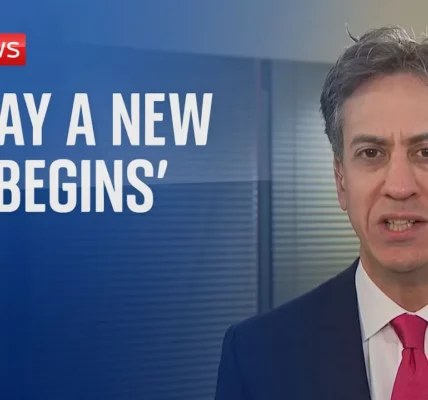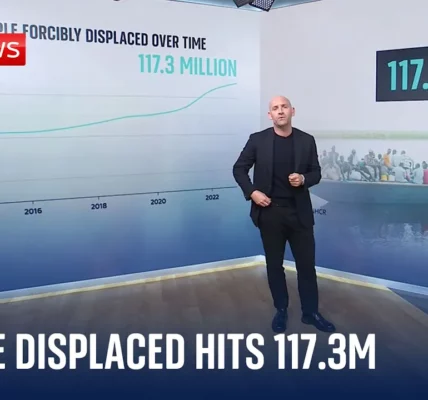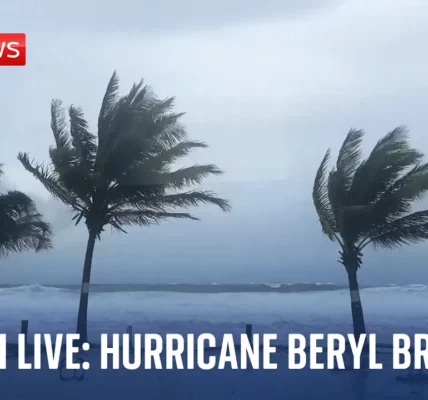One Year After October 7th: A Reflection on Israel’s Dark Day

As Israel reflects on the harrowing events of October 7th, 2022, the nation grapples with the profound losses and the ongoing military conflict that has ensued. This article explores the impact of that fateful day, the response from Israeli leadership, and the continuous struggles faced by those affected.
Introduction
The one-year anniversary of the October 7th attacks marks a significant moment in Israeli history, as the nation remembers over a thousand lives lost and the hostages still unaccounted for. The attacks, carried out by Hamas, not only resulted in immediate casualties but also triggered a series of military responses that have continued to shape the region’s geopolitical landscape. This anniversary serves as a somber reminder of the ongoing conflict and a call to reflect on the human cost of war.
The Day of the Attacks: October 7th
On October 7th, 2022, Israel experienced one of its darkest days. The early morning hours were shattered by the sounds of gunfire and missile strikes as Hamas launched a surprise attack that targeted civilians at the Nova Music Festival, resulting in 364 fatalities and numerous hostages taken. This coordinated assault was unprecedented and left a scar on the collective memory of the Israeli people.
Personal Accounts of Survival
Survivors recounted harrowing experiences, with some hiding in trees or playing dead to escape the violence. The psychological toll of that day remains palpable, with many individuals still grappling with trauma. Families were torn apart, and the collective grief of the nation has only been compounded by the ongoing military conflict.
Israeli Government Response
In the wake of the attacks, Israeli Prime Minister Benjamin Netanyahu vowed to continue military operations until all hostages were returned and Hamas’s capabilities were dismantled. The Israeli Defense Forces (IDF) launched extensive operations in both Gaza and Lebanon, aiming to eliminate threats from militant groups.
Military Operations in Gaza and Lebanon
- Increased airstrikes targeting Hamas infrastructure.
- Ongoing skirmishes with Hezbollah along the northern borders.
- Efforts to prevent missile attacks from Gaza into Israeli territory.
The military strategy has been met with criticism, particularly regarding the humanitarian crisis unfolding in Gaza, where thousands of civilians have been killed or injured as a result of the conflict. The devastation has raised questions about the long-term implications of such military actions on both sides.
The Human Cost of Conflict
The war has resulted in significant suffering for civilians on both sides. In Gaza, reports indicate that nearly 42,000 people have been killed, with many families displaced and lacking access to basic necessities.
Impact on Children and Families
Children have been particularly affected, with many suffering from physical injuries and psychological trauma. Stories of families torn apart and children left without parents have highlighted the humanitarian crisis that has emerged from the conflict.
International Reactions and Support
International responses have varied, with some countries supporting Israel’s right to defend itself while others have condemned the excessive military force used in Gaza. The Biden administration has reaffirmed its support for Israel, emphasizing the need for a balanced approach that considers humanitarian consequences.
Looking Ahead: The Future of Israel and the Region
As Israel reflects on the past year, questions remain about the future direction of its military strategy and its relations with neighboring countries. The potential for further escalation exists, particularly with Iran’s involvement in regional conflicts.
Possible Military Actions Against Iran
Speculation about a possible Israeli strike against Iran’s nuclear capabilities continues to grow. Observers warn that such actions could lead to a broader regional conflict, drawing in multiple actors and further destabilizing the area.
The Path to Peace
The quest for peace remains elusive, with ongoing hostilities hindering diplomatic efforts. The international community continues to call for a ceasefire and negotiations, emphasizing the importance of addressing the humanitarian situation in Gaza while seeking long-term solutions to the conflict.
Conclusion
One year after the October 7th attacks, Israel stands at a crossroads, reflecting on profound losses while navigating an ongoing conflict that shows little sign of abating. The memories of that fateful day serve as a reminder of the human cost of war and the urgent need for dialogue and understanding. As the nation mourns and commemorates the victims, the call for peace and reconciliation becomes ever more crucial. We encourage readers to stay informed about the ongoing situation and to advocate for humanitarian support for those affected by the conflict.
“`




